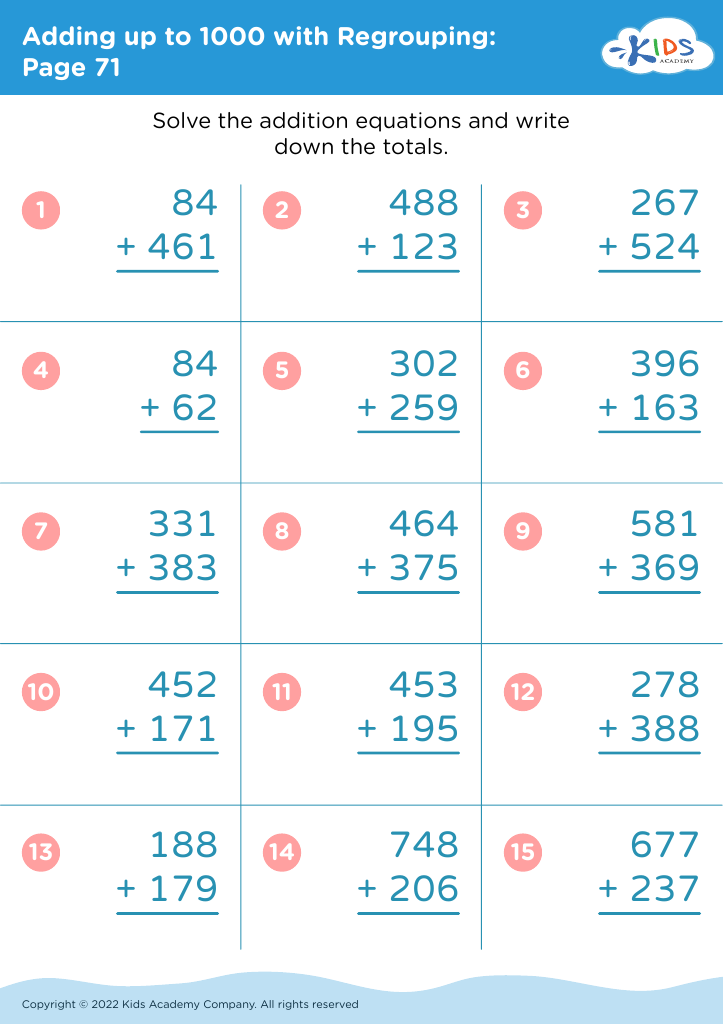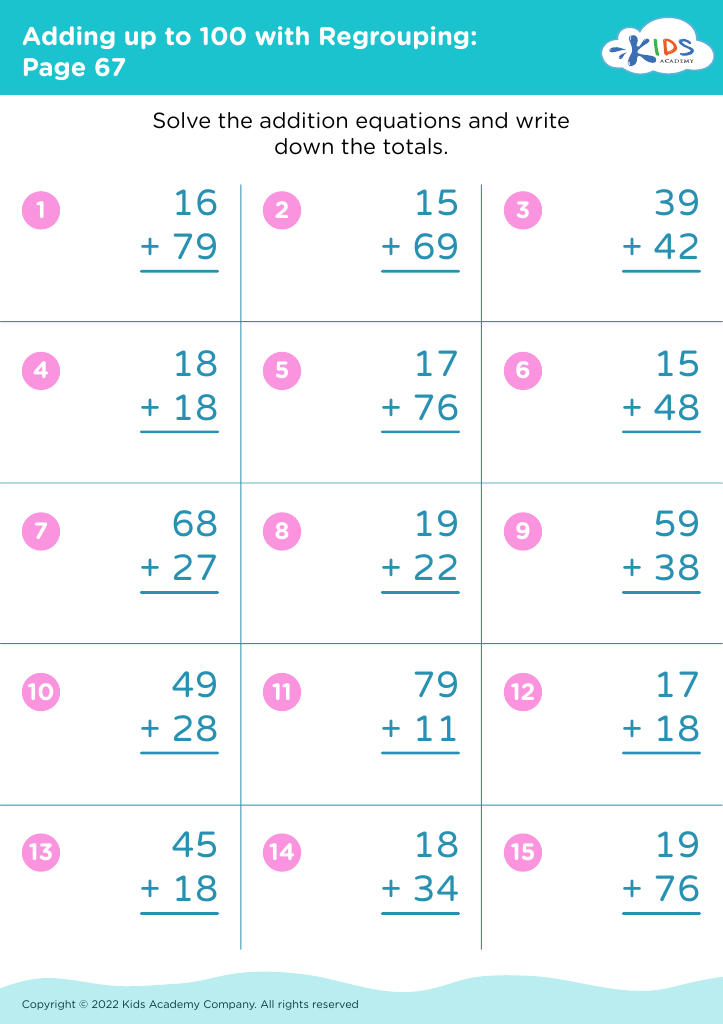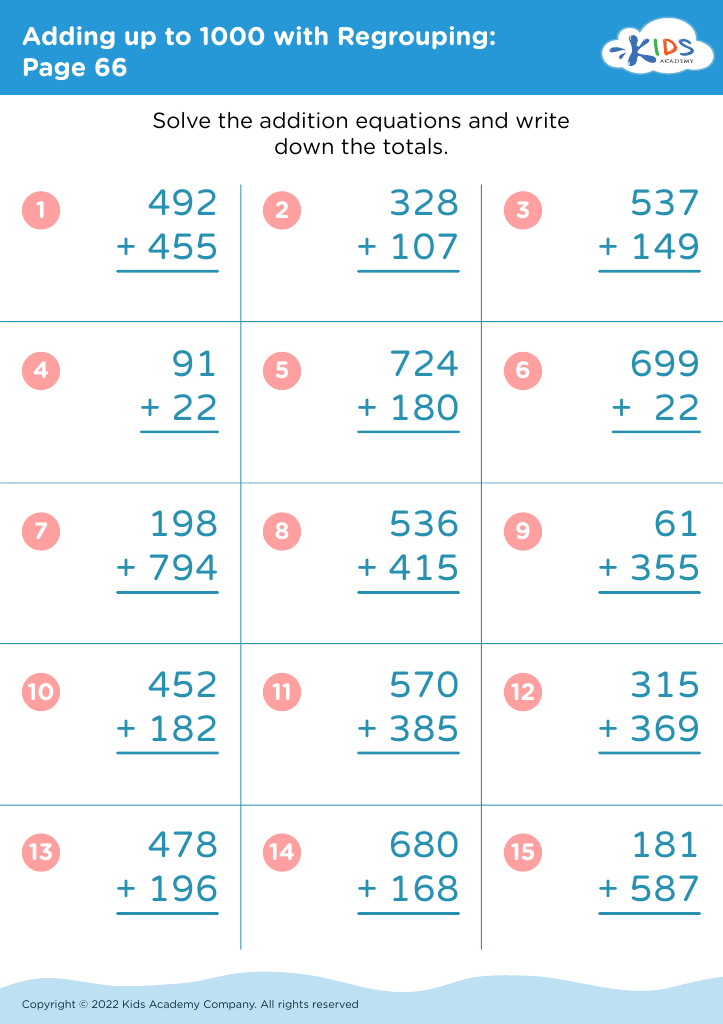Enhances number recognition Addition Worksheets for Ages 5-9
4 filtered results
-
From - To
Boost your child's number recognition and addition skills with our engaging worksheets designed for ages 5-9. These fun activities combine vibrant illustrations with meaningful math challenges, guiding young learners to confidently identify numbers and perform basic addition. Perfect for reinforcing classroom lessons, the worksheets promote both independent learning and parent-child interaction. With a variety of exercises tailored to different learning styles, your child will enjoy mastering essential math concepts, laying a strong foundation for future success. Let us support your child's educational journey with our carefully crafted worksheets, transforming practice into playtime!
Parents and teachers should place a significant emphasis on enhancing number recognition and addition skills in children aged 5-9 because these core math skills are foundational for future academic success and daily life activities. At this formative age, young learners are developing their cognitive abilities, making it the ideal time to introduce and reinforce basic mathematical concepts. Strong number recognition allows children to identify numbers and understand their relationships, which is crucial for performing more complex mathematical operations later.
Learning addition fosters critical thinking and problem-solving skills. It encourages logical thought processes and numerical reasoning, which are essential not only in math but across all subjects. Furthermore, mastering these skills can boost a child's confidence and positive attitude toward mathematics, reducing math anxiety.
In everyday situations, being able to recognize numbers and perform basic addition is incredibly practical. Children use these skills for activities like telling time, counting money, measuring ingredients, and organizing their personal belongings. By focusing on number recognition and addition at this critical developmental stage, parents and teachers set the foundation for academic and practical competence, ensuring that children are well-equipped to handle more advanced mathematical concepts and real-world tasks as they grow.























